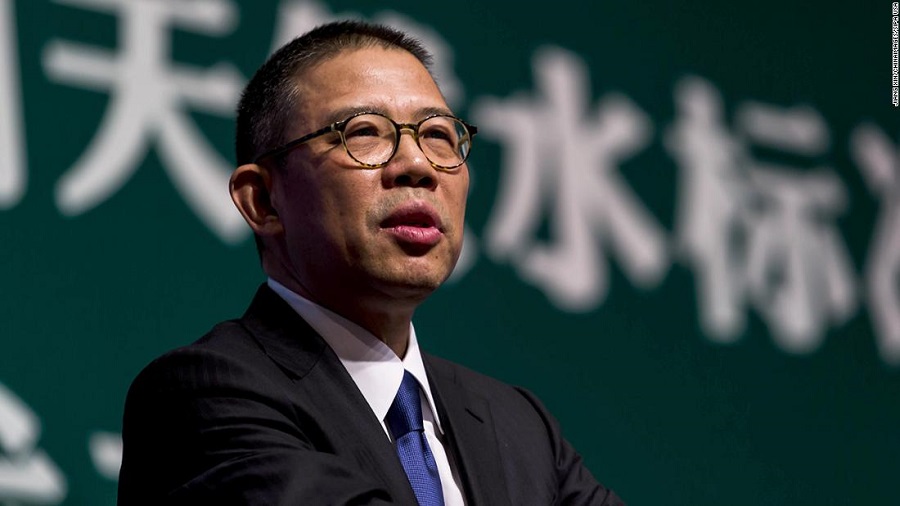Zhang Yiming: Tiktok Founder Becomes China’s Richest Man

In a shake-up of China’s billionaire rankings, ByteDance founder Zhang Yiming now holds the title of the country’s richest person, with a staggering net worth of $49.3 billion, according to Hurun’s latest China Rich List.
The 41-year-old tech magnate surpassed Zhong Shanshan, the bottled water tycoon, whose wealth decreased by 24%, pushing him into second place with a net worth of $47.9 billion.
Zhang’s ascension to the top spot comes despite legal challenges faced by ByteDance in the United States. However, the social media giant’s impressive global revenue growth of 30% last year, hitting $110 billion, has solidified Zhang’s financial standing.
Meanwhile, the number of billionaires in China dropped significantly, from 895 in 2021 to 753 this year, a result of the country’s economic and stock market volatility.
Real estate tycoons bore the brunt of the financial turbulence, while consumer electronics leaders saw an uptick in wealth, with Xiaomi’s Lei Jun adding a staggering $5 billion to his fortune.
As the rich list reflects the shifting dynamics of the Chinese economy, it also highlights the changing landscape of wealth accumulation and distribution in the world’s second-largest economy.
Tech moguls like Zhang Yiming and Lei Jun are emblematic of a new generation of Chinese entrepreneurs who have leveraged the country’s vast market and tech-savvy population to build global empires that are reshaping the digital landscape.
At the same time, the decline in real estate fortunes underscores the sector’s vulnerability to market fluctuations and the government’s efforts to cool overheated property markets.
Zhang Yiming’s emergence as China’s richest man epitomizes the meteoric rise of the tech industry in the country, and the vast fortunes that have been generated by disruptive innovation in the digital space.
With products like TikTok and other ByteDance platforms capturing the attention of hundreds of millions of users worldwide, the company has cemented its position as a major player in the global tech landscape, signaling China’s growing competitiveness in the digital economy.
While Zhang’s success reflects the growing importance of tech-driven entrepreneurship in China’s economy, it also raises questions about the concentration of wealth and power in the hands of a few individuals.
As the country’s tech industry continues to expand and evolve, there are increasing calls for greater regulation and oversight to ensure that the benefits of innovation are more evenly distributed, and that the social and environmental impacts of rapid growth are properly addressed.
Zhang’s ascension to the top of China’s rich list is a reminder of the opportunities and challenges that come with the country’s ongoing economic transformation.
The emergence of Zhang Yiming and other tech billionaires in China has also had implications for the country’s geopolitical influence.
As China’s tech industry continues to expand, it has become increasingly entwined with the country’s foreign policy objectives and its efforts to assert its global leadership in innovation and technology.
The growing clout of companies like ByteDance has also become a source of concern for governments around the world, particularly in the West, where there are growing fears about the potential for Chinese tech companies to collect and exploit user data for political or economic gain.
With the proliferation of Chinese tech companies like ByteDance, Tencent, and Huawei, the world has seen a significant shift in the global balance of power in the tech industry.
The rise of China’s tech giants has challenged the dominance of American and European tech companies, such as Google, Facebook, and Apple, in the global market.
While this shift can be seen as a positive development for diversity and competition in the tech sector, it has also led to rising tensions and concerns about data security, intellectual property protection, and economic espionage.
As China’s tech giants continue to expand their influence around the world, they are also facing mounting scrutiny from governments and regulators who are increasingly concerned about the potential for Chinese companies to pose a threat to national security and sovereignty.
The US, in particular, has taken a hard line against Chinese tech firms like Huawei, TikTok, and WeChat, citing concerns about data privacy, intellectual property theft, and espionage.
These tensions have led to a broader reassessment of the global tech landscape, with governments and companies alike grappling with the complex geopolitical implications of the digital age.
The geopolitical tensions surrounding China’s tech industry reflect a broader competition for dominance in the digital economy, with the US and other Western nations seeking to preserve their leadership in key areas like artificial intelligence, robotics, and 5G networks.
This competition has also fueled efforts to develop new alliances and partnerships that can counterbalance China’s growing influence in the tech sector, such as the Quadrilateral Security Dialogue, also known as the “Quad,” which brings together the US, Japan, India, and Australia in a strategic partnership aimed at promoting economic cooperation and digital connectivity.
Referenece and Citations:
- BBC – Tiktok founder Zhang Yiming becomes China’s richest man
- CNN – Tiktok founder is now China’s richest person
- Businessday – Tiktok founder, Zhang Yiming, becomes China’s richest man






